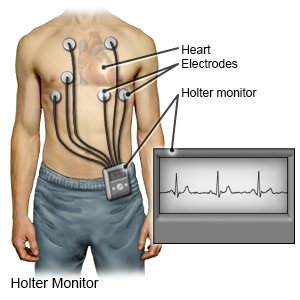Wolff-Parkinson-White Syndrome in Children
Medically reviewed by Drugs.com. Last updated on Aug 4, 2025.
What is Wolff-Parkinson-White syndrome?
Wolff-Parkinson-White (WPW) syndrome is a condition that causes tachycardia (fast heartbeat). A normal heartbeat in babies is 100 to 150 beats per minute, and 55 to 110 in older children. WPW may cause 150 to 300 heartbeats per minute. WPW develops because an extra piece of heart muscle causes more electrical activity within your child's heart. WPW can develop for no known reason. Congenital heart disease or a family history of WPW can increase your child's risk.
What are the signs and symptoms of WPW?
Your child may have no signs or symptoms, or he or she may have the following:
- Fast, irregular, or pounding heartbeats
- Chest pain or trouble breathing
- Heavy sweating
- Dizziness or fainting, or not being able to do his or her activities
- Pale skin, behavior changes, or a fever (babies)
- Trouble staying alert, irritability, or a lack of appetite (babies)
How is WPW diagnosed?
Your older child may be able to tell his or her healthcare provider about symptoms such as chest pain or trouble breathing. Tell your child's provider about anything you have noticed, such as a change in your child's ability to do activities. Tell your baby's healthcare provider about any feeding problems, fevers, or other signs you have noticed. Any of the following may be needed:
- An EKG is a test that measures the electrical activity of your child's heart.
- A Holter monitor is also called a portable EKG monitor. It shows your child's heart's electrical activity while your child does his or her usual activities. The monitor is a small battery-operated device that he or she wears. It will show how fast his or her heart beats and if it beats in a regular pattern.

- Electrophysiologic studies (EPS) test the electrical activity of your child's heart.
How is WPW treated?
Your child's WPW may not need to be treated if it is not causing any signs or symptoms. WPW episodes may decrease or go away as your child gets older. The following are common treatments used to stop severe or frequent symptoms:
- Medicines may be given to slow or regulate your child's heartbeat.
- Radiofrequency ablation is a procedure used to send energy to the area of your child's heart that has an electrical problem. The energy causes an area of the heart muscle to scar. This stops the electrical problem and allows your child's heart to beat normally.
- Cardioversion is a procedure used to give your child's heart an electrical shock. The shock may help put your heartbeat back into a normal rhythm. Cardioversion may be needed if other treatments do not work.
Treatment options
The following list of medications are related to or used in the treatment of this condition.
What can my child do to stop an episode of WPW?
Your child's provider will teach your child methods that can slow his or her heartbeat during an episode. The methods may include vagal maneuvers such as coughing, holding his or her breath, or putting ice on his or her face.
What can I do to manage my child's WPW?
- Have your child carry medical alert identification. Have your child wear jewelry or carry a card that says he or she has WPW. Ask your child's provider where to get these items.
- Ask about exercise. Exercise can trigger WPW episodes. Ask your child's provider how much exercise your child needs each day and which exercises are safe for him or her. Ask if your child can play sports.
- Limit your child's caffeine as directed. Caffeine can trigger episodes of irregular heartbeats. Your child's provider may tell you not to allow your child to have caffeine.
When should I seek immediate care?
- Your older child has chest pain or feels dizzy or faint.
- Your child has fast or abnormal heartbeats even after treatment.
When should I contact my healthcare provider?
- You have questions or concerns about your child's condition or care.
Care Agreement
You have the right to help plan your child's care. Learn about your child's health condition and how it may be treated. Discuss treatment options with your child's healthcare providers to decide what care you want for your child. The above information is an educational aid only. It is not intended as medical advice for individual conditions or treatments. Talk to your doctor, nurse or pharmacist before following any medical regimen to see if it is safe and effective for you.© Copyright Merative 2025 Information is for End User's use only and may not be sold, redistributed or otherwise used for commercial purposes.
Learn more about Wolff-Parkinson-White Syndrome
Treatment options
Care guides
Further information
Always consult your healthcare provider to ensure the information displayed on this page applies to your personal circumstances.
